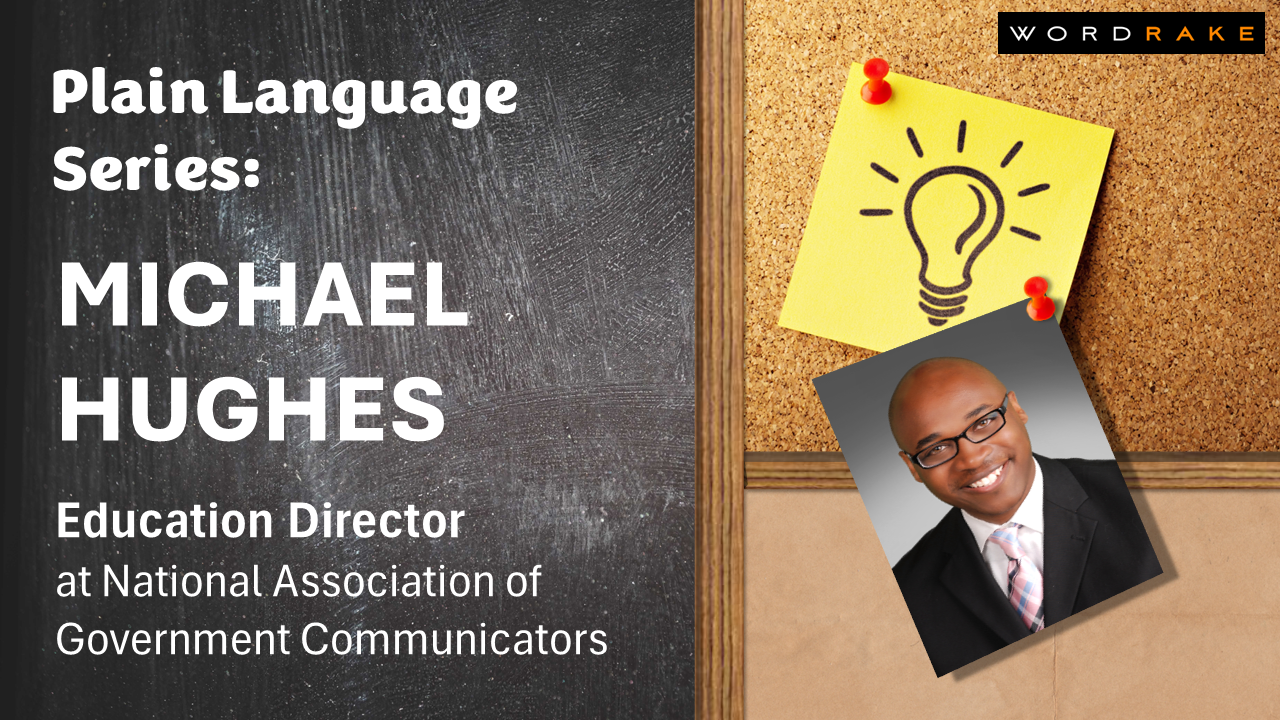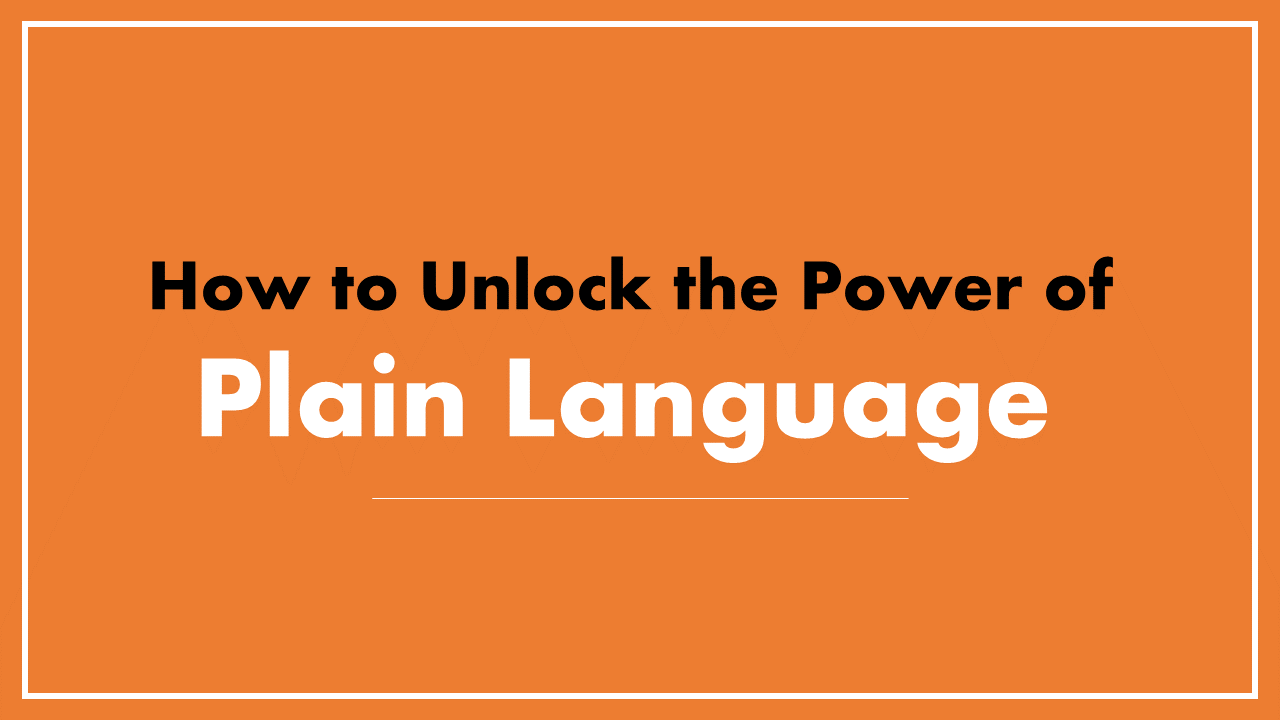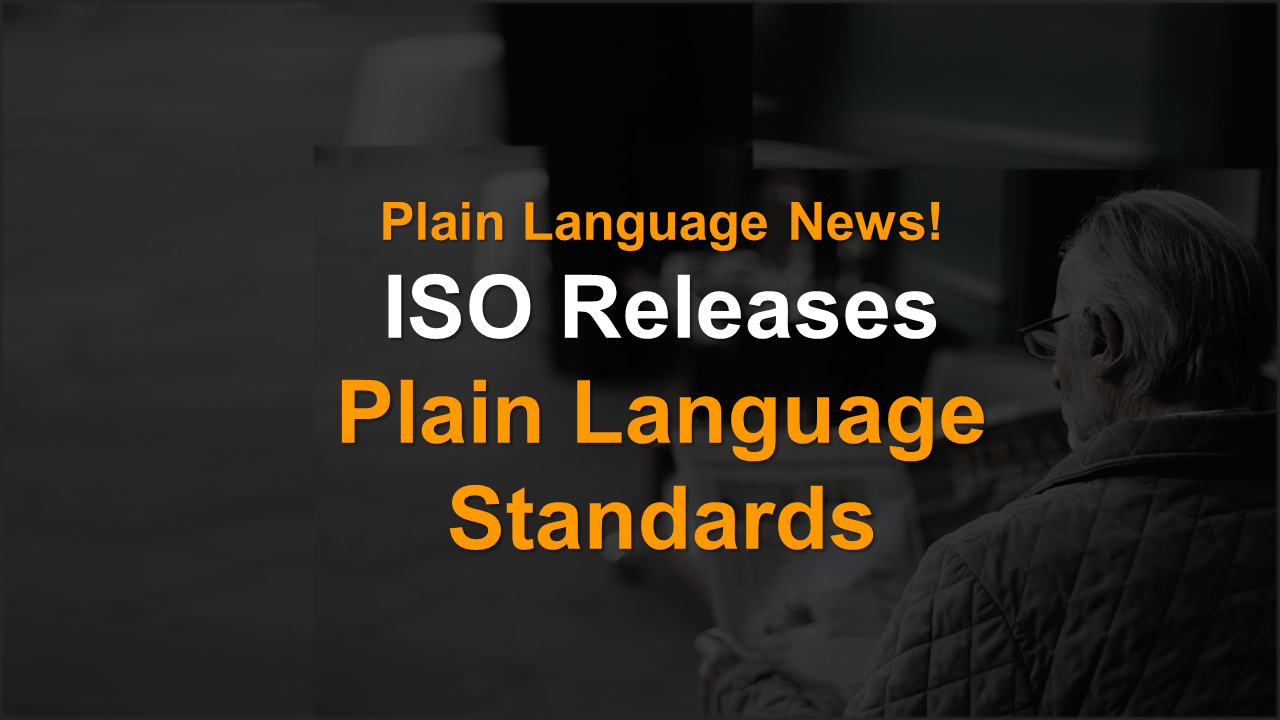What do you do if you work for the government and need to learn how to communicate clearly and concisely with the public? You go to the annual Communication School, organized by Education Director Michael Hughes of the National Association of Government Communicators! Having dedicated his life's work to honest, direct communication, Michael takes time to share his experiences in this International Plain Language Day interview.
What is your role and how is it connected to plain language?
I am the Education Director with the National Association of Government Communicators (NAGC). In my role, I organize and plan our association’s annual Communication School, where hundreds of professionals in the fields of public affairs, media relations, internal communications and external government affairs come together to network and learn best practices on how to effectively speak, write, and deliver information.
What prompted your interest in plain language?
Effective communication is my life’s work. Every day, I work to support government communication professionals on the national, state, and local level to craft better press releases, improve the text on their office’s websites, and deliver crisp briefings and presentations. Plain language is a concept that can help anyone in the communications field do their job better.
What is the difference between plain language and plain English?
The Plain Writing Act of 2010 defines plain language as “writing that is clear, concise, well-organized, and follows other best practices appropriate to the subject or field and intended audience.” Plain English is achieved when a writer uses the simplest, most-straightforward way of expressing an idea. An expanded definition of “plain English” can be found on the Plain Language government website, hosted by the General Services Administration.
How are readability and plain language related?
Readability and plain language both relate to conveying information in way that the intended audience can most easily understand. When a message is written in plain language, the readability of the message increases.
What are some factors that indicate a need to write in plain language?
Anyone who wants their audience to understand what they’re communicating needs to understand how to write in plain language. A newspaper columnist has a limited amount of space for copy. A digital blogger may only have a few seconds to capture the attention of their reader. A speechwriter must ensure that their speaker is going to deliver a powerful and motivating message. All these scenarios require that written communication be delivered in plain language in order for the writer to accomplish their goal.
Many professions (i.e., law, medicine, finance) are gatekeepers of important information for the public. What obligations do professionals have to communicate in plain language?
The best communicators are those who can clearly convey their message. The more important the message, the greater the need to be clear and concise in the delivering that message. Professionals have an obligation to ensure that the information they deliver is free from jargon, esoteric industry lingo, or other language that would make it difficult for their readers or listeners to understand.
What’s the most important—yet simple—change professionals can make to consumer-facing documents to improve understanding?
Proofreading your messages works wonders. After reading a consumer-facing document, a professional should ask themselves, “Is this clear to a non-technical person? Would a person with a limited education understand the material presented? Is there anything in this message that might confuse the average person?” If the answers to any of those questions indicate that the message is not clear, then changes should be made to the document.
Where will consumers commonly encounter the most confusing language?
The most confusing language occurs in medical or legal documents. Lawyers and medical professionals attend many years of school before they can practice their professions. These professionals are often trained to write in language that is highly obtuse. It is critical for communication professionals in these sectors to learn how to write and speak clearly.
What are some consequential yet common instances where consumers encounter confusing language? How can plain language address these instances?
As mentioned earlier, medical patients are often faced with reading highly complex documents. People needing legal services or who are participating in court proceedings are also often faced with confusing language in important documents. Plain language can address these issues. When doctors and lawyers ensure that documents and written messages are conveyed in readable, simple language, consumers in both of these industries will be better served.
What’s the biggest danger to consumers if they don’t understand what is being communicated to them?
Clear communication can be vital. The biggest danger in not knowing what is being said, written or communicated is that those who are most vulnerable can suffer from simply not knowing the correct information. In worst case scenarios, doses in medicine could be misunderstood, incorrect surgical procedures could be ordered, or warning labels designed to keep people safe could be ignored.
Beyond writing with simpler words and shorter sentences, what else can professionals do to communicate better for the public’s benefit?
Professionals should seek at least a second review of their written communication, preferably someone with a strong background or certifications in communications, English, journalism, or a similar disciplines. Two sets of eyes are better than one.
What’s one piece of advice that you would offer to help a professional start using plain language?
I would advise any professional to take a training class on how employ plain language. Professionals can also use tools and tips found on websites like WordRake.com or on the website for the Center for Plain Language.
What’s the most convincing statistic that you can share to convince professionals to start using plain language?
People only retain about 10 percent of what they read. And, according to recent Gallup research, the amount of reading material that people consume is shrinking. Therefore, what you write must be clear, concise, and easy to understand if it is going to have an impact.
About Michael Hughes
Michael Hughes owns and operates Open Mike Solutions, a boutique training firm focused on serving the professional needs of organizations and teams large and small. Michael delivers a wide range of courses and presentations related Diversity & Inclusion Leadership, Public Speaking Skills, Crucial Conversations, Customer Service, Emotional Intelligence, as well as several other topics.
Over the past 20 years, Michael has partnered with several Fortune 500 companies and U.S. government agencies, including: InterContinental Hotels Group, Inc., Marriott International, the U.S. Department of Veterans Affairs (VA), and the National Transportation Safety Board (NTSB), and the U.S. Department of Labor (DOL), among others. He also serves on the Board of Directors of the National Association of Government Communicators as that group’s Education Chair. He began his professional career in broadcasting at CBS News in Charleston, SC as an on-air TV reporter.
He enjoys travelling the world and holds a bachelor’s degree in Broadcast Journalism from the University of Maryland, College Park. You can find him on LinkedIn.
About WordRake and International Plain Language Day
Plain Language experts Cheryl Stephens and Kate Harrison Whiteside created International Plain Language Day on October 13, 2011 to celebrate the first anniversary of the signing of the Plain Language Act in the United States. Since then, plain language enthusiasts take time each year to celebrate the gains the movement has made.
In October 2022, WordRake celebrated Plain Language Day by releasing their new Simplicity editing mode to help comply with plain language laws. As firm believers in the importance of clear communication, WordRake celebrates October 13th by highlighting experts and leaders in the plain language field. To see how WordRake can help you simplify your writing, take a 7-day free trial today!









